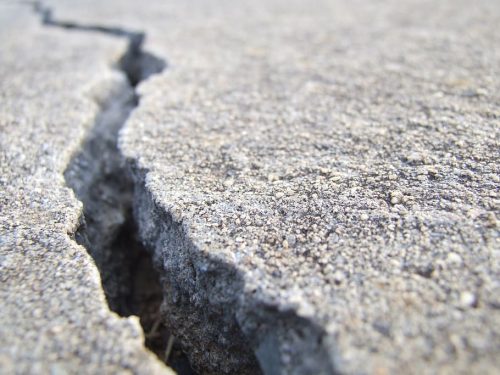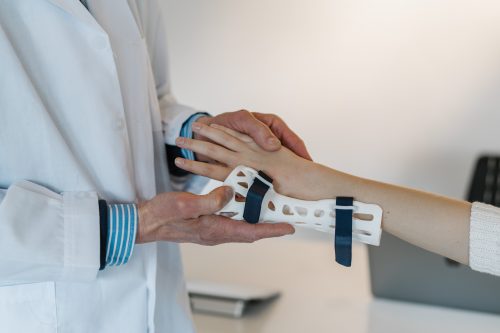Slip-and-Fall Injury: Do You Have a Claim?
Posted in Accident & Injury on April 6, 2021
We’ve all tripped at one time or another. Usually, the cause is something innocent—untied shoes, not paying attention or just plain clumsiness. But what happens if you slip and fall on someone else’s property, through no fault of your own? Can you file a claim if you are seriously injured? The answer is yes, but certain conditions must be met.
Premises Defects
A premises defect is any obstacle, hazard, safety violation or health risk that a prudent property owner would have prevented. The law does not require property owners to guarantee the safety of visitors. However, it does ask that they exercise reasonable care in preventing foreseeable accidents. The following are examples of premises defects:
- Slippery floors

A cracked sidewalk is a premise defect.
- Objects in the walkway
- Uneven or cracked sidewalks
- Objects set precariously on shelves
- Faulty equipment or tools
- Rusty playground equipment
- Inadequate lighting
- Negligent security
- Dangerous elevators/escalators
- Unsafe or uncontrolled pets
According to the most recent data from the CDC, unintentional injuries—accidents—are the third leading cause of death in the United States.
Craig McLaughlin, Partner and Cleveland Premises Liability Lawyer at Elk & Elk
Slip-and-Fall Injuries
Potential slip-and-fall injuries include:

A slip and fall can result in a soft tissue injury.
- Broken bones
- Soft-tissue injuries such as sprains, muscle pulls and tendinitis
- Joint dislocations
- Injuries to the neck and back
- Spinal cord damage
- Concussions and other serious traumatic brain injuries
Winning a Slip-and-Fall Case
With a slip and fall or other premises liability claim, you and/or your attorney must prove one of three things:
- The property owner on an employee should have known about the dangerous condition.
- The property owner or an employee had prior knowledge of the dangerous condition but did not take steps to correct it.
- The property owner or an employee caused the dangerous condition.
The presence of a defect for longer than is reasonable could constitute negligence if it causes an injury. An important question to consider is whether another property owner would have noticed the defect and done something to prevent an accident under the same circumstances. A court will ask this very question in a premises liability claim. If the answer is yes, the defendant may be liable for damages.
Why Choose Elk & Elk
- Proven results
- Over the last 50 years, we have collected more than $1 billion in total verdicts and settlements.
- Resources
- We are not afraid of taking on complicated premises liability claims. We have the resources to tackle challenging cases.
- No-Fee Promise
- We work on a contingency-fee basis. Our attorneys will only charge you for their services if they win your case.
Find out whether you have a premises liability claim—and what that claim could be worth—during a free consultation with one of our skilled Ohio slip-and-fall attorneys. Call 1-800-ELK-OHIO or click here to learn more.